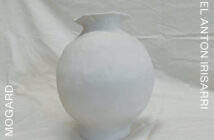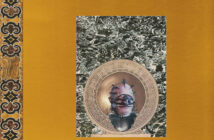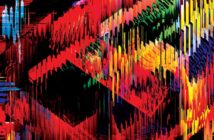
The fusion of Western experimental electronica with Eastern art music is perhaps telling of a supple, curved music world without any vanishing points. Over the course of their second full-length effort, Austrian duo Thilges play with the indistinctness of these two realms, toying with stray coded chirps, murky horn shakedowns and fragile rhythmic structures in the manner of a soft seduction, organising their cycle within an essentially pop framework, and finally excreting a work which dazzles for its pristine surfaces and mathematical precision in the balancing of disparate elements. A sense of time and place is thereby not so much maintained as it is encircled and appropriated – a point displayed by the fact that, far from sounding woozy or aged, the production techniques give the album a clean, flawless sound. The ensuing compositions live off of a purloined energy – weightless violas and flutes dance like fireflies over parched digital rhythms and punchy arpeggios played on an oud, all capable of stopping on the proverbial dime. In these songs of tightly controlled pulsations, where machine codes maintain a steady but unassuming background clatter, and slide guitars echo and chime against large brass sections, everything communicates in a convivial manner and a pleasantly hypnotic sound is released like a soft perfume.
All of this is not to deny the intricacy of the ornamentation, nor the authentic connection of vocalist Zohre Jooya to the rich heritage of Persian and Afghan music. If anything, these styles are simply realised too easily, with each being recognised and coddled before they have any chance to hate or challenge each other. A track such as ‘Hig’ draws one in with its gentle but throbbing miasma of reverbed single-note synth riffs and soft trumpet tones provided by Franz Hautzinger. The piece is even afforded a certain shape by low, prowling bass, crystalline frequencies and Jooya’ mournful intonations. Yet, with such skill on hand, alluring though these works may be, surely they might have been made to tug and tease each other a bit more along the way.
Max Schaefer



